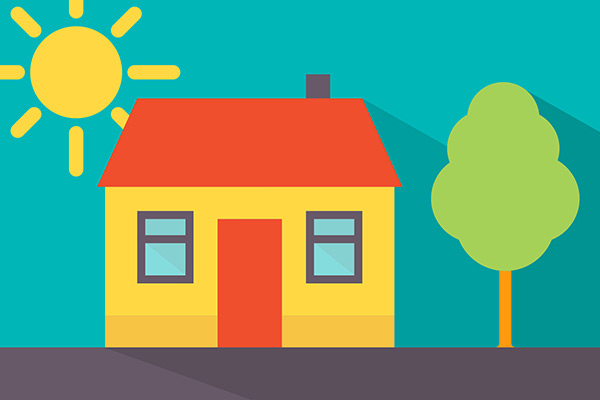Congratulations! You’ve saved up enough for a down payment on your first house—a huge accomplishment. Before you commit, however, be aware that your mortgage payment is just one of the financial responsibilities of homeownership.
Owning a home can be a smart move, offering buyers the chance to build equity, receive tax benefits, and possibly make some money when they sell. And in fact, says one survey, only 8 percent of homeowners wish they were renting instead. Yet according to another survey, 63 percent of millennials have regrets after buying their current home. The main
reason: additional costs—like taxes, insurance, closing and maintenance fees—that can catch you financially off guard. While owning a home can be immensely satisfying, it’s important to be aware of these costs. “A lot of my first-time buyers have been surprised at what it actually costs once they move in,” says Britt Lopez, a Realtor in Dallas, Texas.
Here are some of the costs that Lopez says first-time homebuyers need to budget for.
Pre-Sale Costs
-
Earnest Check
This is like good faith money; it’s usually about 1 percent of the contract sales price as an upfront down payment to the title company. It’s held in escrow and will be credited toward the down payment and closing costs.
-
Home Inspection
This is usually around $500, but can be higher, depending on the square footage. If something’s wrong with the foundation, a structural engineer may be needed, which could cost an additional $500. Plumbers, HVAC technicians and electricians will also charge if they need to come out.
Closing Costs
Lenders fees will vary, but the rule of thumb is that closing costs are around 3 percent of the sales price. This includes title company fees and lender fees. Attorney fees for states that use attorneys instead of title companies will be extra. Closing costs are usually paid at the closing via a certified check or wire, although some lenders will roll the closing costs into the overall loan.
Property Taxes
Property taxes can vary widely by county and school district, but you can find out what they’ve been for a specific address by checking with the local county appraisal district. Your real estate agent will also know how to find this out and can advise you about which neighborhoods have historically higher tax rates. To find out your net costs, talk to your tax professional about deductions on property taxes and mortgage interest and check your state’s available exemptions (for example, a homestead exemption, which could save you money). Also, keep in mind that your lender may require you to have an escrow account and pay the annual tax in installments, together with your monthly mortgage.
Insurance
-
Homeowners
A homeowners policy, available through the GEICO Insurance Agency, can insure for the replacement cost of your assets in case of events like fire and theft.
-
Flood
Coverage for flooding, which affects all 50 U.S. states and 98 percent of all counties, requires a separate policy. The Federal Emergency Management Agency lets you enter an address to see if the home is in a high-risk area for floods; if so, mortgaged homes must be insured for flooding. Flood insurance is also available through the GEICO Insurance Agency.
HOA Dues
Depending on where you live—a private gated community, a condo, an apartment—you may be looking at paying annual, semi-annual or monthly homeowner’s association dues, which could be a couple of hundred dollars to several thousand dollars a month. Be sure to obtain a copy of the HOA rules before you buy so you also understand the HOA’s expectations when it comes to things like upkeep, shared expenses and liabilities.
Utilities
Monthly bills for gas, water and electric might be higher than they were when you were renting, if you’re in a bigger space or if utilities were covered by your landlord. Also, if you’ve never had an account with a particular utility company, you may be required to give a down payment for the service to be turned on.
Before you buy: Ask the seller for the last 12 months of utility bills to get a better idea of what you’ll be paying before you sign the contract.
Maintenance
There will be monthly costs just to keep the house running, as well as covering anything that might need to be replaced or repaired along the way. Some of these include:
-
Outdoor
Yard maintenance can include everything from mowing the lawn to keeping up with the landscaping and trimming trees. If you have a pool, that will need to be maintained, too.
-
Indoor
You’ll need to change the air filters, flush your hot water heater once a year, and have the air conditioning unit regularly cleaned and serviced. If you have a fireplace, experts recommend getting your chimney inspected annually and cleaned as needed.
Appliances
You can’t always predict when appliances will break down (though here’s our guide on how long appliances generally last). The same is true for electrical or plumbing systems.
Before you buy: Get copies of warranties and service records for major appliances from the seller. Also, consider writing a one-year home warranty into the sales contract, which usually covers mechanical workings as well as some electrical or plumbing repairs.
Location
- Neighborhood. When you’re buying, you should think about selling. You may want to spend a little more for a better location, which may offer a better return on your investment when you do sell.
- Commute. Consider the cost of travel between your home and places you’ll be going regularly, like work, the supermarket, and the homes of friends and family.
Here’s another smart idea for keeping costs in check: Get a quote on homeowners insurance through the GEICO Insurance Agency and see if you could save!
Read More: The Ultimate Guide To Home Protection
By Ellise Pierce










Leave a comment